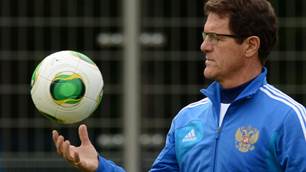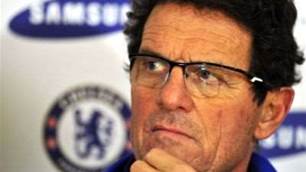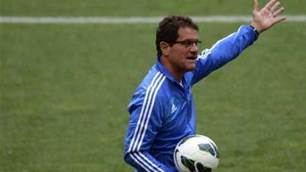AS they mull over whether to offer Fabio Capello the vote of confidence he has demanded, the Football Association's powerbrokers need to decide one thing, have the events of the last seven weeks undone all the good work from the Italian's previous 29 months in charge?
Once the fury at an outrageous decision has subsided, and in some quarters it has done so pretty quickly, the analysis will begin of a performance that was at best mixed, at worst downright awful.
Wind back to the end of March. Few were tipping Germany as potential winners. Too inexperienced. Those who did have experience - like Miroslav Klose for example - were not even rated by their clubs.
By comparison, England had a genuine world star in Wayne Rooney and at least five others, all at the peak of their careers, capable of shouldering the burden of responsibility in a team their manager felt could reach the final.
That was Capello's pre-tournament claim, an assertion he repeated prior to the win over Slovenia, when he said he was "not crazy".
Well tonight in Bloemfontein, the landscape has changed dramatically.
Mesut Ozil has been joined by Thomas Muller, aged 21 and 20 respectively, as a star, not of the future, of now.
In contrast, Frank Lampard, John Terry and Rooney are pale imitations of what a world class player is supposed to be. Injury prevented Rio Ferdinand playing any part, while Gerrard and Ashley Cole, two of England's better performers on a day when they suffered their biggest defeat ever in a major Finals, are only partially excused.
Are they unwittingly hyped beyond their talent? And if not, what went so badly wrong?
These are questions Club England chairman Sir David Richards, managing director Adrian Bevington, FA director of football Sir Trevor Brooking and acting chief executive Alex Horne need to know the answers to.
If it transpires the elements of Capello's management - stern discipline, a demand for focus, a refusal to deviate from the stated path - that brought so much initial success for a team that was on its knees after the failure to reach Euro 2008, do not translate into a tournament camp, then there is no point in him remaining, even though it is less than five weeks since he signed that revised £6million-a-year contract keeping him with England until after the next European Championships.
Should these factors not have generated a feeling of resentment, which seemed to exist to the outside world but those within the England fold have repeatedly stated was a figment of the imagination, then deeper reasons need to be unearthed - and Capello, with all his experience, can be of huge benefit.
Alternatives are there. Roy Hodgson - who was at the win over Slovenia - is still to commit to Liverpool. Harry Redknapp - who was there tonight has the requisite experience and has repeatedly got the best out of players.
However, as England have found to their cost so often, change for change's sake rarely works.
No matter who is in command for the opening Euro 2012 qualifier with Bulgaria at Wembley on September 4, England cannot be expected to be competing for silverware two years later in Poland and the Ukraine.
Did Capello get it wrong when, in searching for back-up to Terry and Ferdinand, he eventually plumped for Ledley King, who can hardly train?
Was there a realistic alternative to Gareth Barry, who Capello screwed up all his fitness demands for to allow him to make the journey?
In attack, was there an option to Peter Crouch and Emile Heskey, neither of whom even looked like scoring do not compare favourably to the men who destroyed England tonight?
Pick a squad for the next World Cup of players born after January 1, 1981. It does not make pretty reading.
Senior football figures will spend the night pondering some very big decisions. The solutions would appear to go far beyond simply who stands in the dug-out.
Related Articles

Capello turned down Italy

Capello son plays down PSG link













